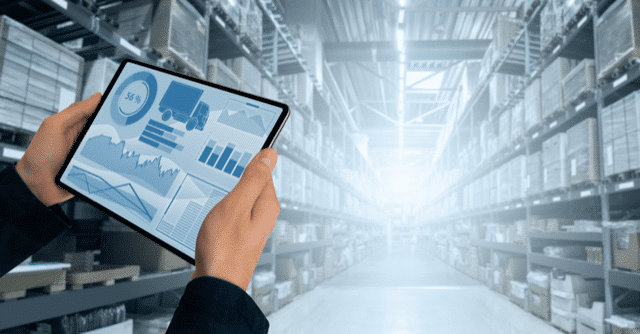Technology as a driver of innovation
Without efficient logistics, it would not be possible to distribute products worldwide and support global trade. In this context, the logistics industry does not stand still, but is constantly evolving, and technology plays a crucial role. More and more companies are recognizing the added value that innovative solutions can provide and are investing in digital technologies to optimize their logistics processes. In fact, the logistics industry has evolved impressively in recent years – from automation in warehouses and the use of robotics to the use of data analytics and artificial intelligence to make forecasts and optimize supply chains. New technologies have revolutionized the efficiency and performance of logistics processes, enabling companies to streamline operations and reduce costs.
Artificial intelligence: a key component
One of the most significant technologies being used in the logistics industry today is artificial intelligence (AI). Using algorithms and machine learning, AI is able to analyze large amounts of data and identify patterns that are difficult for humans to identify. This enables improved forecasting capabilities, demand prediction, and more efficient inventory management. In addition, AI can also be used in route optimization to make deliveries faster and more cost-effective.
Robotics: the future of warehousing
Another area that is revolutionizing the logistics industry is robotics. The use of robots in warehouses and distribution centers enables more efficient picking and packing of goods. By taking over repetitive tasks, robots increase productivity and help reduce costs. In addition, autonomous vehicles and drones open up new possibilities for faster and safer transport of goods, even to remote areas.
The Internet of Things: connectivity and real-time monitoring
The Internet of Things (IoT) is also opening up immense opportunities for logistics. By connecting devices and sensors, companies can monitor the condition of their goods in real time. Temperature, humidity and location can be continuously tracked to ensure the supply chain is functioning optimally. In addition, IoT enables seamless communication between all players in the supply chain, leading to improved coordination and efficiency.
A glimpse into the future
The logistics industry is only at the beginning of its digital transformation. Continued advancements in technologies such as AI, robotics, and IoT will further increase efficiency and productivity. Implementing predictive analytics will help identify bottlenecks and delays in the supply chain early on and take action to avoid them. In addition, autonomous vehicles and drones are expected to play a greater role. The use of self-driving trucks and unmanned delivery drones will further reduce delivery times and ease traffic on the roads, 3D printing will transform the logistics industry, and AI will also be used in customer service in the form of digital avatars as customer advisors. The future of logistics lies in the fusion of technology and supply chain management.
Conclusion: myth busted
The logistics industry is far from the myth of being a low-tech industry. Modern logistics is highly technology-dependent, with sophisticated digital systems for tracking and managing inventory, routing shipments and optimizing transportation networks. Ongoing digitization and the use of innovative technologies are changing the way goods are moved, stored and tracked. Companies that recognize and adapt to these changes will be able to remain competitive and increase efficiency and profitability.
More myths uncovered
It remains exciting – in the next article in this series, we will address another myth in the logistics industry.









